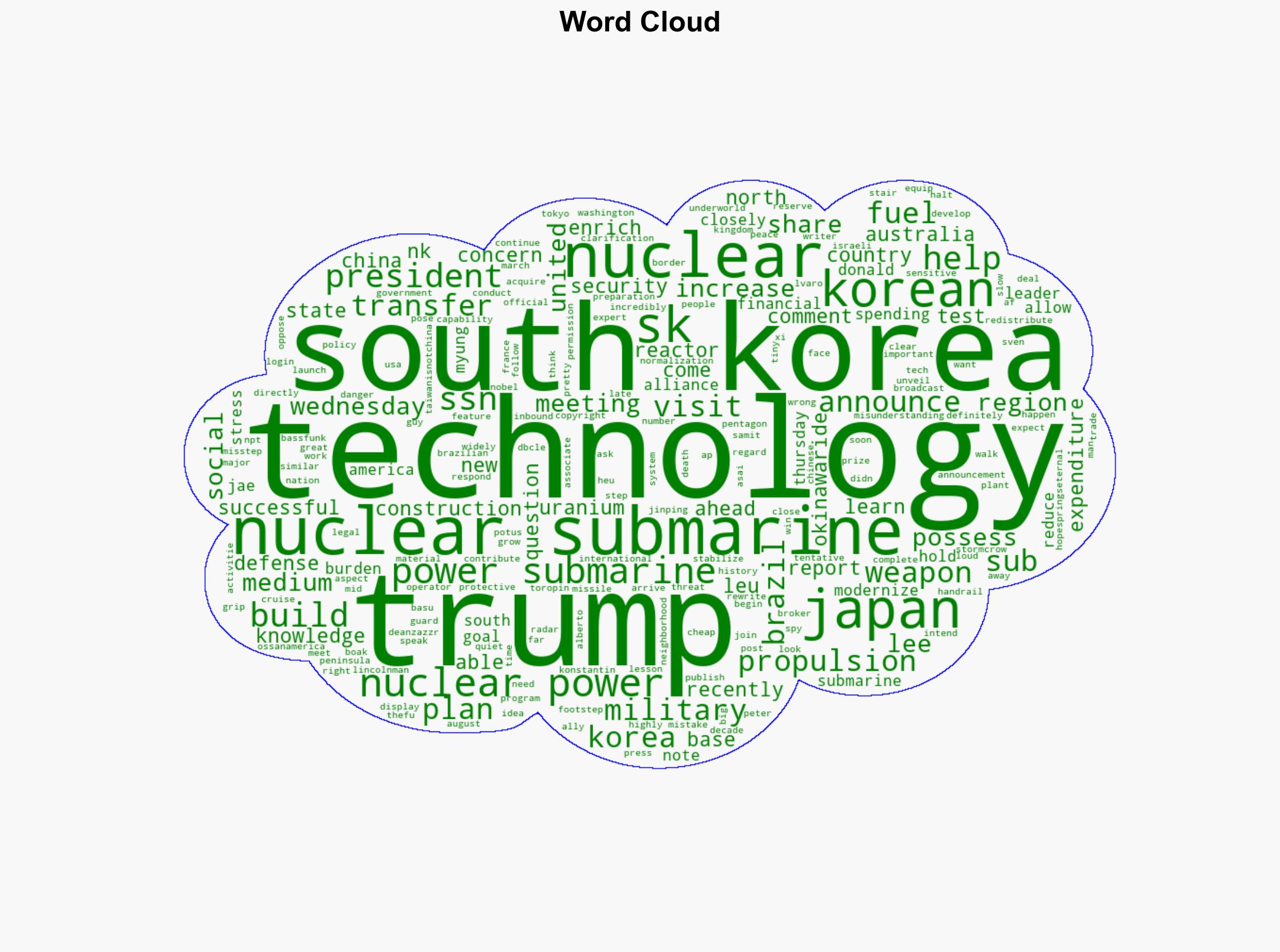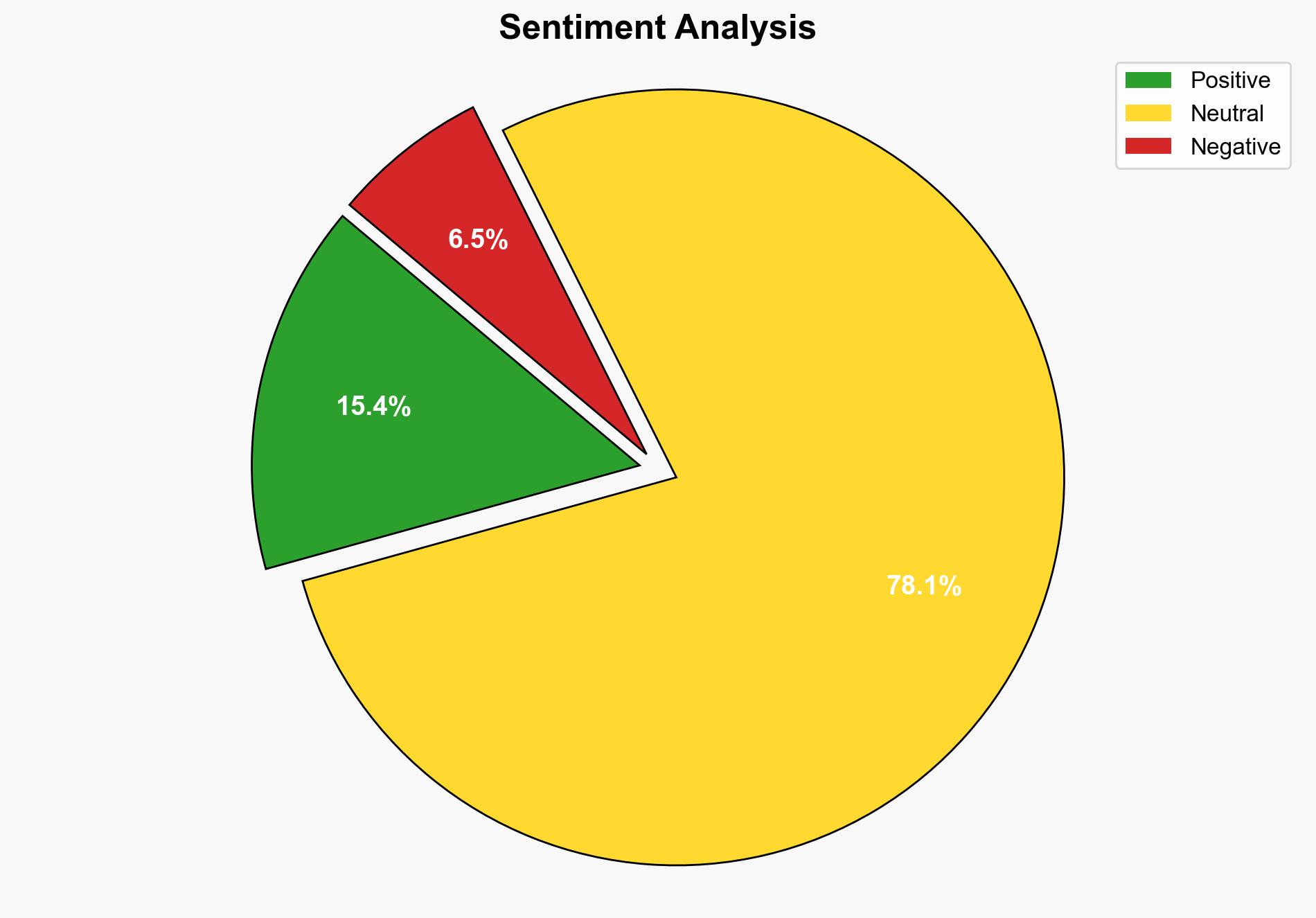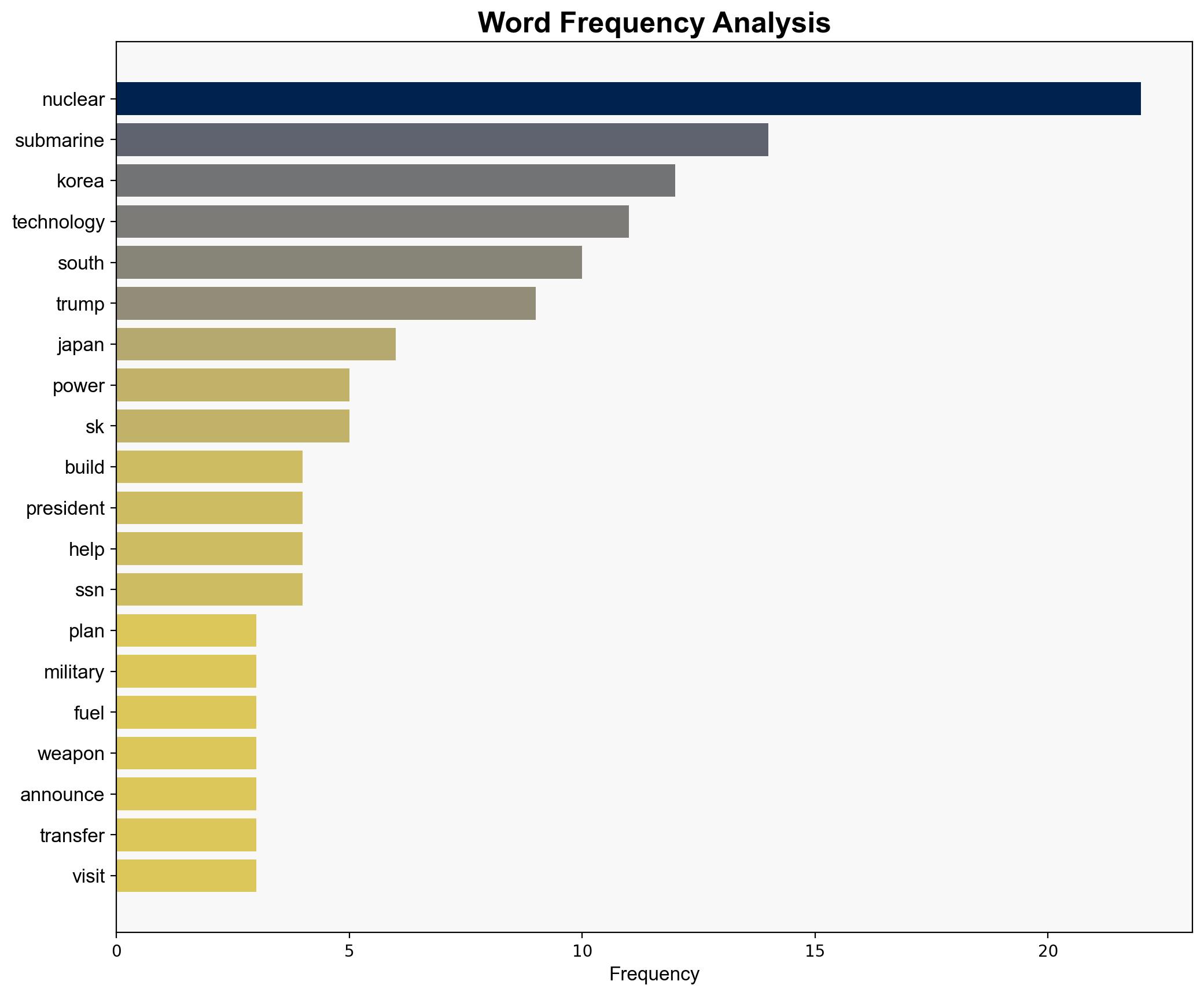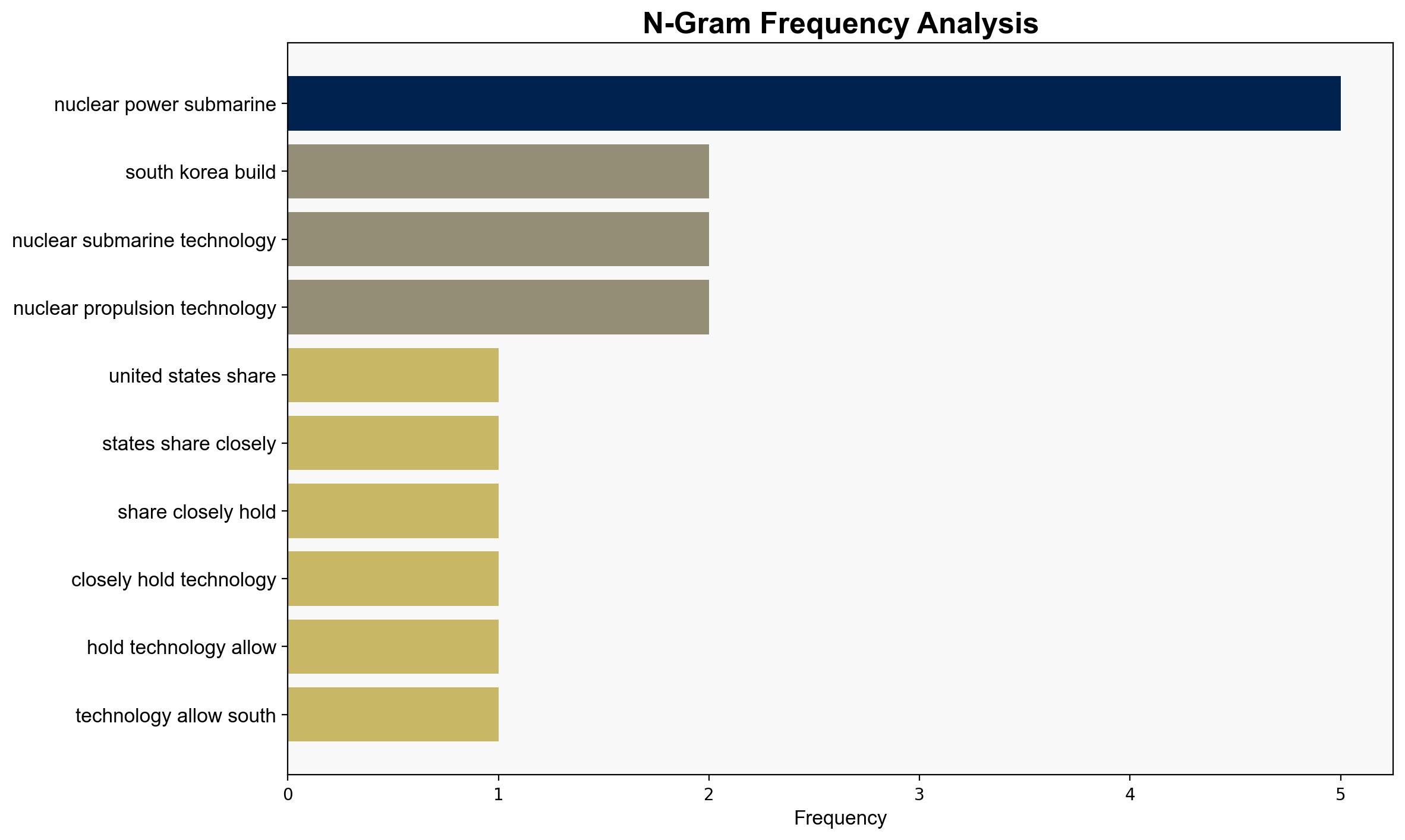US will share tech to let South Korea build a nuclear-powered submarine Trump says – Japan Today
Published on: 2025-10-30
Intelligence Report: US will share tech to let South Korea build a nuclear-powered submarine Trump says – Japan Today
1. BLUF (Bottom Line Up Front)
The strategic judgment is that the announcement of the US sharing nuclear submarine technology with South Korea is primarily a diplomatic maneuver aimed at strengthening alliances in the Asia-Pacific region. The most supported hypothesis is that this move is intended to counterbalance China’s growing influence and North Korea’s military advancements. Confidence level: Moderate. Recommended action: Monitor regional responses and prepare for potential shifts in military alignments.
2. Competing Hypotheses
Hypothesis 1: The US intends to genuinely transfer nuclear submarine technology to South Korea to bolster its defense capabilities against North Korean threats and Chinese influence.
Hypothesis 2: The announcement is primarily symbolic, aimed at signaling US commitment to South Korea and deterring adversaries without actual technology transfer.
Using ACH 2.0, Hypothesis 2 is better supported. The lack of official confirmation from the Pentagon and the sensitive nature of nuclear technology transfer suggest a symbolic gesture rather than a concrete plan.
3. Key Assumptions and Red Flags
– Assumption: The US has the political will and legal framework to transfer such sensitive technology.
– Red Flag: No official confirmation from the Pentagon or other US government entities.
– Potential Bias: Overreliance on statements from a single source (Trump) without corroboration.
– Missing Data: Details on the timeline and scope of the technology transfer.
4. Implications and Strategic Risks
– Geopolitical: Potential escalation of regional arms race, especially with North Korea and China.
– Economic: Increased defense spending by South Korea could strain its economy.
– Cyber: Heightened risk of cyber espionage targeting South Korean and US defense sectors.
– Psychological: Strengthened US-South Korea alliance may deter adversaries but could provoke aggressive responses.
5. Recommendations and Outlook
- Engage in diplomatic dialogues with regional stakeholders to clarify intentions and reduce tensions.
- Enhance cybersecurity measures to protect sensitive military technology from espionage.
- Scenario Projections:
- Best Case: Strengthened alliances lead to regional stability and deterrence.
- Worst Case: Provocation leads to increased military tensions and an arms race.
- Most Likely: Symbolic gesture with limited immediate impact but potential long-term strategic shifts.
6. Key Individuals and Entities
– Donald Trump
– Lee Jae-myung
– Xi Jinping
– North Korean military
7. Thematic Tags
national security threats, regional focus, geopolitical strategy, military alliances





